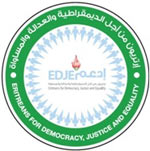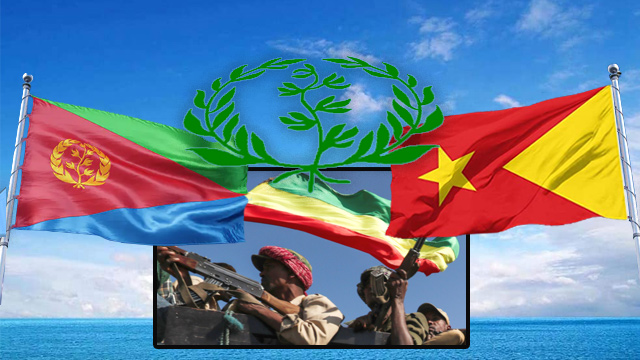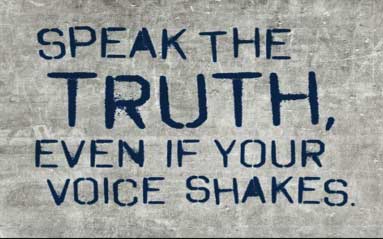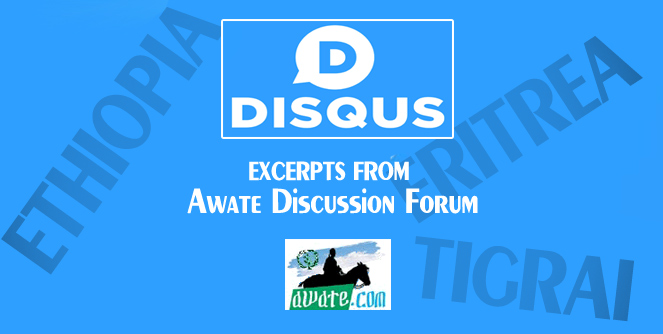Perspective On Forto 2013

Eritreans For Democracy, Justice and Equality (EDJE)
There is no doubt that the event of January 21, 2013 in Asmara will remain one of the most important and most controversial in the Eritrean political arena for a long time to come. This is due to its uniqueness, quantitatively by the involvement of a far greater number of people, and qualitatively – for being different from all preceding opposition movements that emerged from within the PFDJ in terms of magnitude and wider base. Unlike previous anti-dictator movements that were composed of only a selected few, limited and confined to the narrow circles of the participants themselves, this movement took quite a different course in a direction that will possibly have greater potential to inspire and pave the way for a series of attempts towards regime change sooner or later, depending on the speed and the manner in which the present situation will finally be resolved. This event is also distinguished by the elements of surprise and boldness as well as the secrecy and ambiguity that engulfed it in all respects.
Obviously, we cannot start discussing this crucial issue without expressing our deep appreciation and high regard for the people behind it. We also acknowledge the event as a heroic national move that shook the chauvinistic dictatorial regime to its roots. We have no doubt that this action has required a great deal of skill, courage, selflessness, and willingness to sacrifice from all those who executed it. Especially being well aware of the consequences in view of the notorious history of the ruling junta that is known for its excessive cruelty, mischief and treachery even with those deemed closest to it; a regime that has never hesitated in committing all sorts of crimes and abuses in order to tighten its grip on the country and curb its people’s aspirations to attaining full freedom. The latest flagrant example of abuse was the inhumane manner perpetuated to induce the martyrdom of Brigadier-General Saeed Ali Hagai (Wad Ali) and the harassment and arbitrary arrests of all involved or accused by the security apparatus of any relationship or association with this movement, be it practically or morally.
Despite the blatant lies expressed by the head of the regime and his attempts to distort the facts in order to downplay, discredit and disparage the event and those responsible for it, the violent reaction of the regime in conducting witch hunt campaigns and arbitrary arrests against many, confirms the real state of severe shock and confusion the junta is confronting.
The 21st January movement was distinguishably marked by the unfolding of events in which a group of military personnel from the Eritrean Defence Forces marched into and occupied the headquarters of the Ministry of Information in Asmara. They were able to broadcast, through the regime’s TV and Radio, part of their demands asserting the release of all political prisoners and the activation of the 1997 Constitution. This action later came to be known as “The Reform Movement” or “Forto 2013” and it has certainly constituted a landmark in our national history. It was also clearly demonstrated by the objectives of the movement that it intended to propagate its message and voice to the greater part of the people and not only to just send a message to the head of the regime to execute their demands and carry out the required reform of its prevailing and detrimental policies.
In spite of a considerable lapse of time, and Isaias Afwerki’s appearance in a television interview in an attempt to dispel doubts to the fact that his regime’s status as infallible has noticeably been dented and his grip on power has become shaky, yet the vision to the background and objectives of the event still remains blurry as it was on the first day. This is despite the appreciated efforts of several parties to highlight the event, analyse its inception and read into its possible repercussions and what developments could result from it in the foreseeable future.
In our opinion, the event of 21st January is a serious movement with important implications in terms of its boldness in openly and directly confronting and defying the regime. However, the Eritrean political reality demands that we cautiously address the event in its totality, considering all aspects, in order to set it in its right objective context. There is no doubt that the movement has constituted an additional tributary that would further enhance, promote and support the efforts of the existing opposition forces that have been struggling for a long time to get rid of the existing regime and to replace it with an alternative governance system that is based on the principles of democracy, justice and equality under the rule of law and that realise the separation of powers, just share of power and wealth and all basic human and democratic rights and freedoms in equity .
According to our point of view the full discussions of the issue should be carried on basis of several relevant phenomena manifested in this event but here we will only dwell on specific aspects:
- The degree of interaction by political opposition organisations abroad with the event.
- The interaction of pubic and civil societies with the movement especially the youth in the Diaspora.
- The complete lack of information about the event from either the regime or the movement as well.
- The desperate attempts by the regime and its collaborators to colour the movement with a sectarian tint.
- The prospect of a military change that would replace the current dictatorship of an individual with a possibly new form of dictatorship.
The reaction of the political opposition that consists of those organisations under the umbrella of the National Council and the others outside it, in spite of many claims made that the event was long predicted because of the general feeling of discontent that was the direct consequence of the accumulation of severe internal tensions and dissents that have been gradually building up for a considerable period. Particularly after the recent objections made by middle-ranked officers in the military to transfer orders in what seems to have been a retribution act in response to their refusal of direct orders from the Head of the regime to conduct a counter-attack in reaction to the last Ethiopian military incursion. These orders were seen by the military as Isaias Afwerki’s way to save face and restore his injured self-esteem and pride, despite the lack of the necessary material and psychological preconditions in the military. Having seen the opposition’s reactions it seemed that the events had caught all by surprise including the political organisations that clearly manifested a complete lack of information, readiness and ability to cope with developments. They issued only few statements or declarations that did not reflect any prior knowledge or comprehensive view of the situation and developments that unfolded contrary to the claims and assertions made. It seems that the opposition parties missed to account at all for such a development in their political agenda and calculations. They at least were expected to properly utilise the opportunity availed by the events to have a purposeful political discourse using an objective analysis that would have shed more light on and explained the event in light of the dialectical relationship between the opposition at home and abroad. The real problem or defect in the oppositions’ political work and equation is the inability to extend its presence and influence to the people inside Eritrea and that of establishing the essential relationship required between the two aforementioned facets. There should be an earnest concern to address the question of how to handle this mater urgently and seriously to transform the opposition from a spectator and theoretical analyst to one that not only actively and positively engages new events, but creates them. This requires a total change in the strategy of opposition groups and their mind set, in order to eventually establish an organic relationship or link that is presently missing between the home arena and Diaspora, thus putting an end to this separation and alienation. The political message expressed by the opposition organisations through the different media venues, due to the lack of information, was inadequate and unreliable and there was a failure to properly benefit from the opportunity offered by major media channels, at least to explain the “Reform Movement” from their point of view and how to harmonise the objectives of the Movement with those of the political opposition. They were supposed to conduct a meaningful political discourse by linking the demands of the movement with what have been agreed upon in the Eritrean National Congress for Democratic Change (ENCDC) reiterating the importance of establishing a just democratic system based on political pluralism and recognising all rights stipulated by the international conventions regarding human rights and the adoption of a constitutional decentralised governance system as basis to maintain unity in diversity.
The “Reform Movement” came amidst continuous internal and external deteriorating situations resulting in extreme misery, impoverishment and gloomy prospects for the people. In the internal arena the living conditions of the people have badly deteriorated in an unprecedented way, where the lack of basic life necessities such as food, healthcare and education has become so widespread. This; coupled with the deterioration of all government services without exception has created a situation that overburdened the citizens with unbearable life pressures that could not be tolerated. All this was further exacerbated by the continuation of the regime’s detrimental policies of an open, indefinite military service and rampant unemployment. These conditions resulted in increasing the pace of youth displacement in the form of thousands of young people fleeing the country who in the process become exposed and subjected to many untold sufferings of all sorts of atrocities and difficulties that extended beyond the usual lack or shortage of nutritious food and proper shelters to extreme cases of exposures to abduction, rape, human trafficking and organ harvesting at the hands of international criminal rackets which the regime is also implicated in.
In these circumstances, it was natural for the freedom loving Eritrean people to immediately grab this opportunity in the hope of shattering the shackles of tyranny and getting rid of the suffocating grip and nightmare of dictatorship resting heavily on their chest. Thus, many Eritreans in different countries abroad came out in support of the reform movement. In an attempt to accelerate and build up the pressure and momentum the youth groups carried demonstrations that spread wildly occupying a number of the regime’s Embassies in many Western countries. This unequivocally expressed an absolute rejection of the regime and full solidarity with the “Reform Movement”. That was a really popular upheaval that sent strong messages and signals to the despot confirming that the youth uprising possesses an unwavering determination, strong urgency and commitment to struggle for and achieve the change aspired. Meanwhile confirming that they are part and parcel of the overall political process led by the opposition at home and abroad that would continue to struggle hard to channel all efforts in the direction of real change that would restore the lost human dignity and hope to the Eritrean people.
Our knowledge of the nature and full objectives of what was later dubbed “January 21st Movement” is insufficient and is limited mainly to the two demands made. Namely, the release of all political prisoners and the activation of the 1997 draft Constitution that was ‘ratified’ but ‘shelved’ or more accurately, at least this was the part mentioned in the message that was broadcast through Eritrean Radio & Satellite TV during the early moments of the “Movement” after forcing the manager of EriTV channel to propagate their demands before the transmission was interrupted. Amidst the growing speculation about what the rest of the list of undisclosed demands could have included, one does not help but wonder if there was any mention of the opposition abroad relating to its firm stand in the face of dictatorship throughout the reign of Shabia. The opposition had its historic legacy of active and continuous contributions in the liberation struggle which spanned over thirty years, finally culminating in national independence which Shabia had alone happened to benefit from by monopolizing power in the country for more than two decades.
While the regime remains true to its nature and being committed as usual to full silence trying to pretend that everything is well, a matter not in the least surprising for us, we have wished that the “Movement” could have broken away from that tradition and seized the opportunity that presented itself to deliver its full vision to the masses and the Eritrean opposition forces through all means available. Particularly after observing the rising levels of support to the “Movement” and protest actions against the regime carried out by the youth and public from all sectors abroad, taking into account the role of Eritreans in the Diaspora and their ability to influence public opinion through their persistent work that aims to overthrow the regime. These opposition groups are supportive of the “Movement” and its bold challenge that has shaken the basis of the regime and broken the fear-barrier arising from the wrath of the tyrant, its repressive security organs and its suspicious alliances and advocates and apologists in the region and worldwide.
The most disturbing and worrying signals that the regime is trying to send, as usual emanate from and reflect its sectarian and chauvinistic nature and policy in an attempt to colour the pioneers of the movement with a sectarian tint in order to drive a wedge between Eritrean constituents by creating confusion, scepticism and fear among the people and to make them doubt the goals of the “Movement” to use that as a pretext to easily embark upon implementing its devious and criminal plans of carrying systematic isolation, marginalization, exclusion and physical liquidation that the regime has never hesitated to execute against anyone with whom it has any sort of disagreement. We all recall the liquidation of Mankaa and other activists in different national fronts during the period of armed struggle, the malicious attack against the mutiny of the liberation’s wounded veterans, the arrest of the G15, closure of independent newspapers and the imprisonment of journalists … etc. Therefore, all should be warned that the tyrant will strike harder in retaliation to the daring operation carried out by the champions of this “Movement”. We also call upon all free media platforms to ascertain the reliability of their sources and accuracy of materials and to continue to support the struggle for democracy, rule of law, achievement of freedoms, respect of human rights and the fair sharing of power and wealth between the national components, as well as being alert and cautious not to fall an easy prey in the snares of the regime’s calculated misinformation campaign dissipated through its official media or via its collaborators.
As we state our recognition and appreciation of the “January 21st Movement” as an action representing extreme courage and selflessness in directly confronting and opposing the dictatorial regime and the fact that it opened a window of hope for our people aspiring for a change towards a brighter future, we must reiterate that the task demanded is the full uprooting of the dictatorial regime that underlies the basis of all forms of suffering inflicted on the Eritrean people. Thus not permeating any other force from within or outside the current regime to infiltrate and hold power in an attempt to ensure the continuation or recycling of old policies in new forms through carrying out minor cosmetic changes and reinstating another form of dictatorship that will primarily preserve the same narrow interests without changing the essence of the existing dictatorial regime. Therefore, concerted efforts and actions are required from all internal and external opposition forces to focus on building trust between all parties concerned and agreeing on the requirements of the democratic transition through the mobilization of all existing civil, youth and political opposition forces that reject all forms of hegemony and dictatorship practiced by the current regime and have had considerable contributions to that effect. Despite the difficult conditions facing all the opposition groups they provide a more reliable platform for launching and adopting inclusive principles and policies far advanced to those embodied in the 1997 Constitution, and that consist of measures that fully accommodate the Eritrean diversity and clearly confirm the rights of all the national components to have their just share of power and wealth through the establishment of a decentralised system based on a constitution prepared and approved through the exercise of real, fully inclusive democratic means. Thus, the struggles waged at home and abroad will complement each other to achieve the common objectives leading to the desired democratic change for our people.
We must point out here the complex nature of the Eritrean people’s reality in terms of cultural, religious and ethnic diversity, a matter that requires very careful handling to ensure true unity in the context of diversity. Our unity should not be based on the politics of hegemony and domination where the strong devour the weak or that of the survival of the fittest, as such policies have been tried before and failed and cannot benefit anyone in the future. These policies had caused the Eritrean people to endure and pay dearly in suffering, blood and toil under the Ethiopian colonial occupation for more than forty years during which they made insurmountable sacrifices in hundreds of thousands of martyrs, millions of displaced in the struggle for liberation and independence and in the hope for a better life. It is unfortunate that the current life conditions are in no way better, if not much worse than they were in the era of the vanquished colonial force, as the national authority that followed in its footsteps imposed a harsh and autocratic dictatorship based on subjugation and domination of the people for more than twenty years. This resulted in new waves of refugees in addition to the former refugees that have not yet been repatriated and are left to languish indefinitely in refugee camps. The youth especially have been badly exploited since independence by working in servitude like conditions of forced labour in projects owned by the regime. Not only that, but the regime plunged Eritrea into adventurous wars that cannot be justified in any way with all its neighbours, the fiercest of which was the Ethiopian – Eritrean war which was basically caused by the arrogance of the dictator at the cost of untold heavy losses in lives, land, and dignity and squandered the very limited resources of the country. Eventually this led to regional and international isolation and sanctions against the rouge regime that destroyed what had been left of the poor economy that was already in a devastated state due to the long war of liberation.
We avail our self of this opportunity to call upon all conscientious and patriotic Eritreans to renounce and fight against all kinds of tyranny, hegemony and dictatorship, whatever their origin or justification, and to join hands in their struggle for a brighter future for our children that will only be attained through a consensus on recognising all freedoms and rights to realise and preserve a durable unity in the context of diversity that paves the way for a bright and promising future for our people.
Victory to the heroic struggle of the Eritrean people.
Glory and eternity to our revered martyrs.




Awate Forum